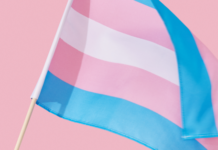The documentary Enemies within the Church shows that similar human sins thrive in US evangelicalism and Eastern Europe
“He who is faithful in the small will also be faithful in the great, while he who is unjust on a small scale, will also be unjust on a grand scale.” So said Jesus to his disciples in the sixteenth chapter of Luke.
We should count these words among the many verses that American evangelicalism has lost sight of. Believers in Jesus Christ should understand the parallels between injustices that happen within their immediate social orbit and injustices they see writ-large on the nightly news. The little things and big things have an important and enduring relationship because people’s misconduct in one’s sphere mirrors and compounds their misconduct in the other.
Let us consider, for argument’s sake, someone who has very few resources but applies the few resources he has to abuse other people. It is safe to conjecture that such a person would probably commit war crimes if he were rich, powerful, and able to command thousands of troops to follow his bidding. If he had no regard for the damage done by his nonviolent and supposedly mild cruelties, it would not be hard to numb him to the damage done by violence.
Once he’s numb, anything becomes possible, because he no longer heeds the voice of the Holy Spirit.
So why do I bring this up?
A documentary came out about abuses of power within American evangelical churches, called Enemies within the Church. If you made it this far into the present article, you really need to go to this website (www.enemieswithinthechurch.com) and see it. I realize that most people right now are consumed with news about Ukraine. But the human concerns that drive readers to follow the Russian invasion bear upon the urgent information provided in the documentary.
What does the evangelical church have to do with the price of tea in Ukraine?
Americans are hearing leaders like Russell Moore denounce Putin for being a “murderer and tyrant” as well as “an abuser of evangelical Christians, other religious minorities, and even his own country’s orphans.” Wow, that’s rich. “Rev. Dr. Moore” has engaged in his own venal tyrannies. When he was president of the Ethics and Religious Liberty Commission, that organization didn’t just attempt to liberalize tens of thousands of American churches toward an agenda fundamentally at odds with the Bible. The ERLC minions also destroyed people’s careers, joined in campaigns of character assassination, and ruthlessly invaded institutions to get access to their resources, the most prominent example being the way the ERLC clique went savagely after Paige Patterson and his allies in order to install their friends and fellows at Southwestern Baptist Theological Seminary.
Politics is as complicated in the church as it is at NATO. Russell Moore is an easy target for outrage. But as Enemies within the Church points out, like most supervillains of church life, Moore was promoted and protected by a host of people who have yet to be held accountable for the damage done to American evangelicalism. Documentary producer Judd Saul worked carefully to bring these abuses to light. If people don’t understand the stakes and scope of the problem, if they fail to defend the bride of Christ against those who are abusing her, then American churches don’t stand a chance.
Many people I respect have told me there’s no point fighting the fight of Enemies within the Church. They tell me the camp championed by the documentary—call it “the Christian right” if you wish—has already lost the war.
Since the story about Ukraine broke, I’ve had heart-to-heart conversations with my friends on both left and right, especially who have been ruthlessly canceled. I’ve called up people like Michelle Shocked and Denise McAllister to find fellowship with those who went through cancel culture as I did. Authoritarian sins caused me and so many other Christians to lose our careers, friends, family, and reputations. It is obvious that the warmongering against Russia will bring cancel culture to a whole new level. People who question the dominant warmongering narrative should expect to be labeled pro-Putin, racist, and fascist, and forced to choose between their values and their ability to survive. What seemed like our “personal” issues with censorship and institutional abuses now appears ready to bring Western civilization into World War III and thermonuclear war.
My friends may be right; perhaps all is lost. For my part I have withdrawn from social media and almost all public debate because I feel I did what God asked me to. I think God has given me leave to “cultivate my own garden” (pace Voltaire’s Candide) away from the toxic sparring with people like David French, Colby Adams, Jonathan Merritt, Hannah Williams, Karen Swallow Prior, Janet Mefferd, and the rest. The wisest thing my father ever told me was, “the world is full of a–holes. Avoid them so you don’t smart smelling like them.”
I’ve also realized that almost nobody in the public square believes the ideologies they wear as labels. There is no shortage of famous people embroiled in debates about LGBT and Christianity, including the pastors who answered John Macarthur’s call to protest against government bans on conversion therapy on January 16. In LGBT debates, however, most commentators do not seem to care about whether self-identified gay or trans people can turn to Christ and live out the Bible’s vision for sexuality. They care about winning the debate.
I know many of these self-proclaimed gospel defenders from my ten years of being involved in debates. They weren’t there when these battles mattered or when their advocacy could have made a difference. They let countless people get banned, shunned, and crushed. Most of them have fallen into a predictable routine and need to perform their Christian beliefs in order to pay their bills and save themselves from loneliness and embarrassment.
Culture wars and conventional ground wars have something in common. They have to be fought. They require strategy. They depend on funding, morale, and courage. To win wars you have to do something. And it saddens me to see Christians wanting to do something about Ukraine, where they can’t accomplish anything valuable, while they continue to do nothing about the disastrous fall of Christ’s bride at home.
That’s the key point getting lost in the fog of war. On the whole American Christians do not know very much about Ukraine or Russia. Unless they want to push American politicians to become entangled in yet another conflict far removed from us, full of ambiguities and devoid of clear-cut good and bad guys, we can’t do anything about Ukraine from here other than pray. We should pray. But when it comes to the same timeless sins of hubris, domination, callousness to suffering, deceit, greed, vainglory, ambition, and aggression, take note—there is more than enough of that in our own church world, and evangelicals can do something about it close to home.
The culture war plays a major role in the Russia-Ukraine War. The term “clash of civilizations,” coined by Samuel P. Huntington, could apply to Russia’s friction with the west as much as scholars applied it to the collision of Christianity and Islam. Within the supposedly Christian west, one worldview anchored in timeless moral standards wrestles mightily against another worldview, which is not anchored anywhere but floats on the whims of postmodern, posthuman, relativist thinking. The United States has been exporting its sexual decadence, reckless consumerism, and general hedonism all over the globe. In the last fifteen years, Russia has played the counterbalance to the US in cultural terms, because Putin and other Russians have refused to go along with the west’s redefinition of gender, sexuality, family, history, and morality. A lot of Christians who agree more with Putin than with Biden on morality find themselves in a difficult dilemma if they embrace the anti-Putin propaganda which boosts the anti-morality of America’s political hedonism. They also find themselves in an awkward position if the situation tempts them to defend everything Putin does.
Saul and Gordon came out with their film in November 2021. It is no surprise that all the platforms that need to be airing it are working hard to erase the truths the film exposed. The movie documents how people with unchristian agendas have grossly distorted scripture, even turned it against itself, in order to capitalize on the social capital that comes with America’s pastorate. No matter how little talent one has, no matter whether someone believes in Christ or not, he who controls the pews has access.
My own history with the documentary, and evangelical corruption
I was interviewed and appeared in the documentary because I had firsthand experience with the subject matter. I have learned the painful truth that there is nothing Christian, right, or conservative about what people perceive as the Reagan-legacy Christian right.
This year marks ten years since I published an essay in Public Discourse, an online journal that posts a lot of content for conservatives and Christians. The article was entitled “Growing Up with Two Moms,” and it recounted my experience from childhood to early adulthood with a gay mom and her partner. I published that article because I was essentially recruited by Catholic influencers Mark Regnerus, Ryan Anderson, and Robert George to defend Regnerus’s research into same-sex parenting (these are all people leading fairly comfortable lives right now, who haven’t spoken to me in years and seem unfazed by the fact that my speaking out to defend them led me to backlash that nearly ruined me). If you will recall, 2012 was the year of Barack Obama’s presidential contest against Mitt Romney. That contest pit Obama, who publicly opposed gay marriage previously, against Romney, who was governor of Massachusetts when the state lurched ahead to legalize gay marriage (with Romney’s blessing).
The role of gay marriage in the 2012 election was farcical. Nobody had a track record that supported the position they defended so passionately to win votes. Debates about LGBT had been overwhelmingly framed by people whose interest in such debates was cynical. Almost all the bluster had nothing to do with the lives harmed by either antigay prejudice on one side or by hypersexualization and perversity on the other side.
I didn’t care about gay marriage in 2012. I honestly still don’t see it as a major issue regarding LGBT. I had been saved in a Chinese Baptist church in Los Angeles. My interest in the LGBT debates was carefully thought through, and it was based entirely on wanting people not to suffer because of antigay ignorance or because of the LGBT community’s abusive and harmful agenda. I knew the gay community was pushing un-biblical, anti-Christian, and downright heretical ideologies about sexuality because they were determined to misrepresent scriptures to make homosexuality somehow okay in the eyes of God.
But the battle over sexuality was something that had to be fought in the churches, where Christians were being subverted or capitulating, rather than in City Hall, where so much Christian energy was being wasted. I knew that. To the extent that I cared about public policy, I cared about two major issues: the importance of children being connected to their mother and father, and the rampant problem of sex abuse, particularly abuse of children, which I had seen in the gay community. I had been sexually abused by other boys and men from the age of 13 into adulthood, and had struggled with the turmoil and dysfunction that caused for my whole life.
Having a gay mom, a distant father, siblings who lived in victim-blaming denial, and a second mother figure flitting in and out of my life did not help. All these figures in my life were far-left in their politics, including in their fanatical commitment to denying that anything bad ever happened in the gay community. To deny the wrongs happening in the gay community they had to deny the wrongs that happened to me. To deny the wrongs that happened to me they had to shun me. That didn’t change the fact that I cared about them deeply and cared about other people who might be in situations similar to mine. I wanted people not to experience the pain that characterized my unhappy life.
I only cared about gay marriage to the extent that the people pushing gay marriage kept lying about the effects of same-sex parenting in order to justify the push to marriage. The upheaval in the home unit would naturally lead to millions of people having to deal with the scarring turmoil I had gone through.
The other big issue to me was the gay community’s coverups of sex abuse in their midst. But the Christian right that I foolishly joined forces with sidestepped the sex abuse issue for years and didn’t want to fight same-sex parenting too vigorously because that topic dealt with fertility and the nuclear family. Debates about parenting would bring uncomfortable attention to adoption, divorce, orphanages, child trafficking, surrogacy, and sperm donation, all issues on which Christians were vulnerable. Nobody wanted to take on sex abuse in the gay community because pedophilia was a third rail. So the Christian right was most focused on the part of the LGBT issue I didn’t care about and where I couldn’t contribute much—the narrow juridical question of whether states could legally refuse to issue certificates of marriage to same-sex couples.
When “Growing Up with Two Moms” was published, I was 41 years old and recently discharged from the military. The stress of being relentlessly attacked and harassed took a toll on me in the years following. I lost control of my life and lived in a constant state of anxiety. Several times I had to be hospitalized for cardiac problems. I struggled with drinking and grew obese. The conservative movement invested in younger, prettier faces and people who had talking points closer to their ideal rhetorical position, something about free markets and Reagan’s three-legged stool, which I was frankly too liberal to sign on to. Having been an antiwar activist and still on record supporting healthcare reform, I wasn’t a big hit with the Paul Singer, Heritage, Cato, and AEI crowd. Soon gay parenting went from a hot topic to a big shoulder shrug, and nobody on the right was invested enough in the issue to be invested in me.
I went from having tenure in Los Angeles to not having tenure, to not having a job in any higher ed, to not having more than three or four friends left of the massive conservative clique that surrounded me in the years immediately following “Growing Up with Two Moms.” By 2021 I was jobless, friendless, and bitter; thank goodness that I had a few stalwart buddies and my wife and kids. People don’t just experience mild inconveniences when these things happen. They die from the health effects or kill themselves, like Mike Adams did in 2020. I am glad I didn’t fall into total despair. I saved myself by realizing that I had wasted a decade trusting a flock of con men, liars, cheats, users, losers, creeps, opportunists, and abusers. Once I realized how bad it was, I felt freed to move on with my life, however hard it would be to start over in my fifties.
Nothing about the leadership of the church has changed since I made my exit from the public debate. The con men, liars, cheats, losers, creeps, opportunists, and abusers are all thriving. Almost every time you find a champion, if you get to know them up close, you find out they’re one of the swamp creatures again.
Are we going to accept this as business as usual? Are we going to speak out against the sensational manifestation of these human sins when they make international news, but do nothing when the same human sins destroy lives and desecrate the bride of Christ in our own community?
Before you answer the question of the preceding paragraph, watch Enemies within the Church. I hope the film will lead you to answer, “no, I am going to do something about it.”
Post-script: There’s a little bit of good news. My marriage didn’t break up over all the tumult of 2012-22, and I have lost 52 pounds in counting since I broke with the Christian right; I am now within 15 pounds of my ideal weight. I am happy most days and don’t feel the need to drink. I like to think of the latter as my heeding Paul’s advice to offer our bodies as a living sacrifice.

















Amen. We’re in a strange war and people need to be fully armored by God.